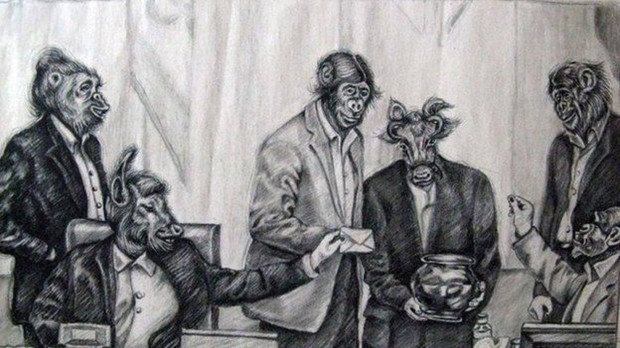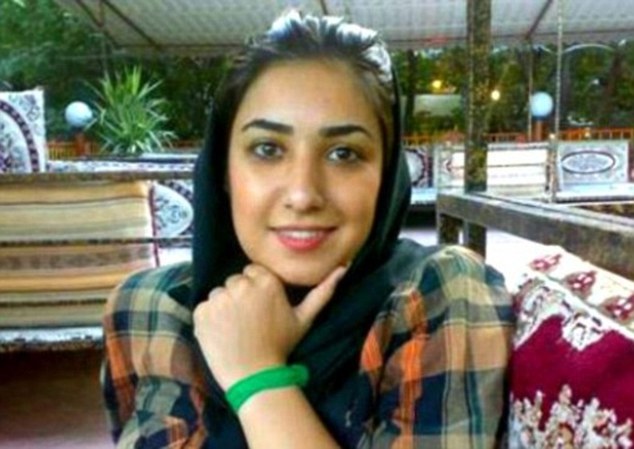Atena Farghadani is set to be released after her 12-year prison sentence was reduced to 18 months. Her lawyer Mohammad Moghimi told the Associated Press that “she will be freed soon,” though the exact date has not yet been determined.
Farghadani was sentenced in June 2014 for a cartoon which criticized a law limiting women’s access to birth control and specifically depicted the county’s parliament as animals.
“Atena is being punished for something many of us have been doing in Iran: drawing politicians as animals, without naming them,” Iranian-American artist Nikahang Kowsar told the Washington Post. “What Atena drew was just an innocent take on what the parliamentarians are doing, and based on the Iranian culture, monkeys are considered the followers and imitators, [and] cows are the stupid ones. Many members of the Iranian parliament are just following the leaders without any thoughts.”

Farghadani’s arrest on January 10 earlier in 2014 was preceded by repeat arrests and beatings before her summons to a Revolutionary Court. Many believe the summons was due to a YouTube video Farghadani had posted in which she detailed the horrendous conditions of her previous detentions, such as her time at the Gharchak Prison outside of Tehran and two weeks of solitary confinement after she was transferred to Evin Prison during her hunger strike, according to the Art Newspaper.
Additionally, in August 2014, judicial authorities forced Farghadani to submit to repeated virginity and pregnancy tests. She relayed the news through a letter smuggled out of the prison in October, and the tests were confirmed by UN Secretary-General Ban Ki-Moon in his semi-annual report on the state of human rights in Iran. The UN report describes that Iranian authorities “stated that prison authorities carried out tests to respond to allegations of sexual assault against her on some websites.”
The United Nations and World Health Organization in 2014 urged practitioners to stop conducting the invasive tests, emphasizing that they have “no scientific validity,” and the practice is outlawed in article 7 of the International Covenant on Civil and Political Rights, which Iran has ratified.

As stated in the Voice Project’s open letter to the President of Iran, Hassan Rouhani, “Farghadani’s sentencing and imprisonment is a cruel and unjust response to a peaceful act of dissent. Free expression and the freedom to peacefully criticize one’s own representatives are not crimes, and should not be treated as such.”
